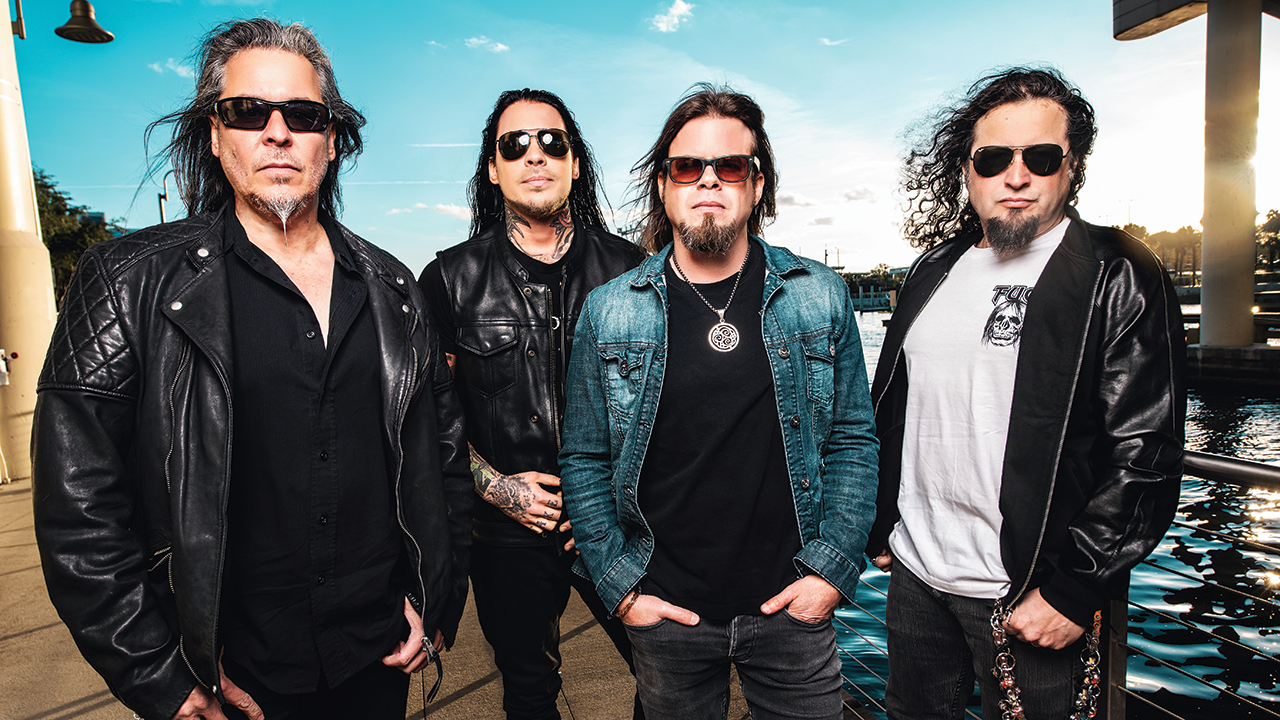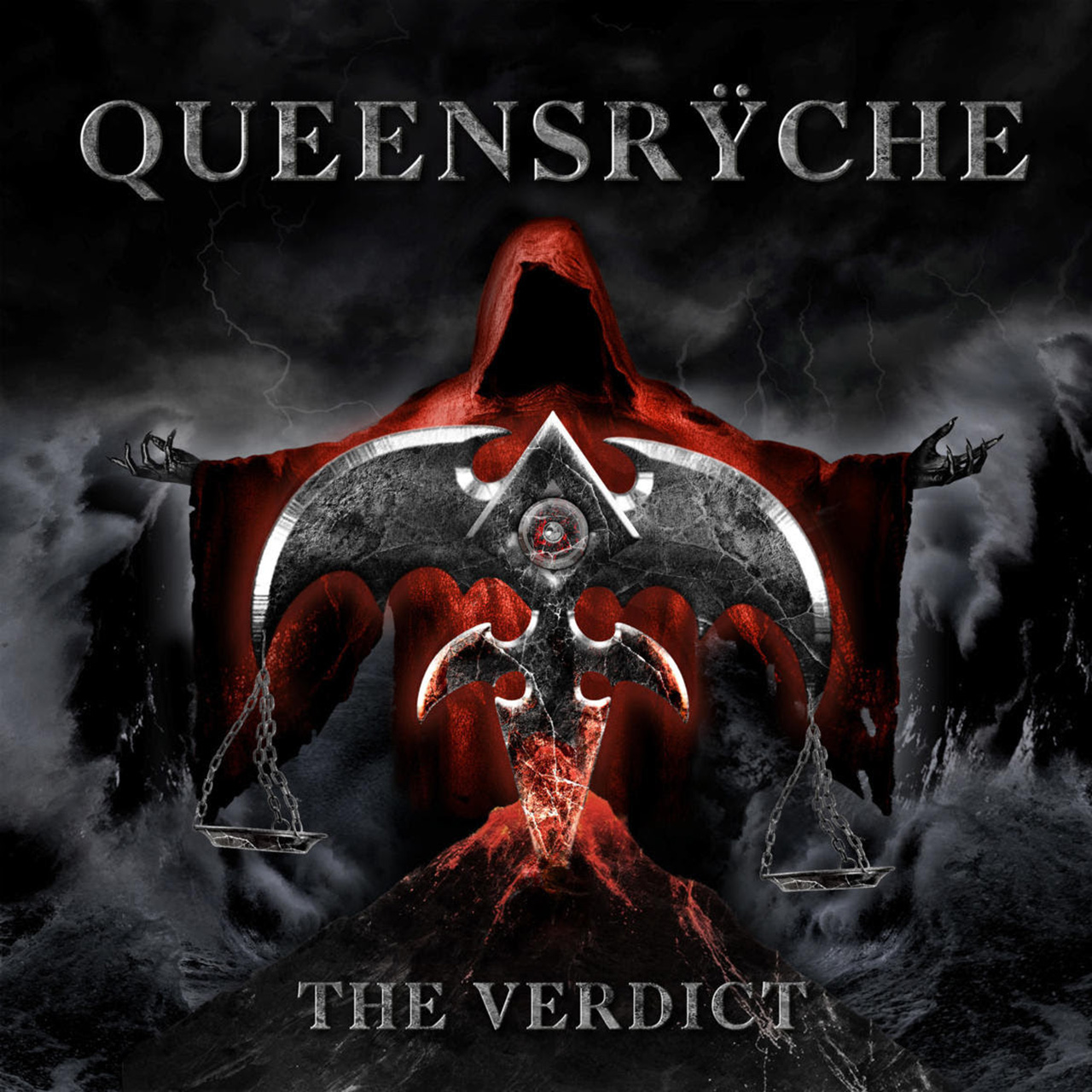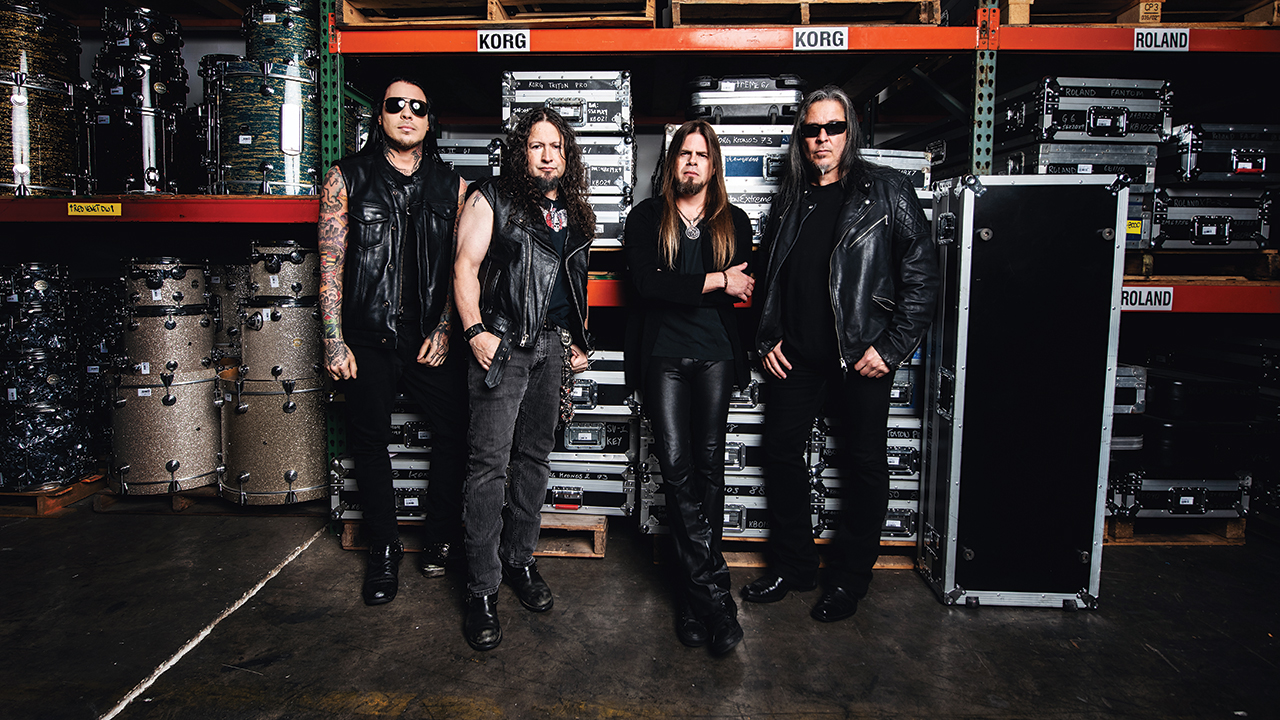
“I think we’ve always looked for a bold statement for an album,” Queensrÿche told Prog back in 2019 when The Verdict, their third album with fomrer Crimson Glory man Todd La Torre, showed the band back to their former prog metal best.
Being a Queensrÿche fan hasn’t always been the easiest task. For this writer, one pivotal moment came when the band played in the UK during their American Soldier tour in 2009. The new album they were promoting was decent enough, but even the most slavish acolytes were left scratching their heads when the Seattle legends routinely played a set that barely touched upon their classic albums Operation: Mindcrime and Empire, let alone any of their much-loved early material.
Admittedly, it had been a number of years since the band, then led by vocalist Geoff Tate, had sounded much like their old, chart-bothering selves. When Tate’s final album with the band, Dedicated To Chaos, emerged in 2011, sounding like lots of things but none of them Queensrÿche, the sound of many final straws being chewed was deafening. Perhaps surprisingly for such an iconic figure and creative force, Tate’s subsequent acrimonious departure came more as a relief to the diehards than anything else.
What a difference a line-up change (sometimes) makes. Queensrÿche returned
in 2013 with a thrillingly cocksure self-titled album, now fronted by ex-Crimson Glory singer Todd La Torre and sounding exactly like you might have hoped a 21st-century Queensrÿche would. Best of all, those attending live shows were immediately delighted to note that the Americans were once again performing tons of classic material and loving every minute of it. As guitarist and founder member Michael Wilton tells Prog, it wasn’t just the fans that were feeling thoroughly relieved.

“Are you kidding me? I felt like, [adopts terrible Scottish accent] ‘Scotland is free!’” he roars, laughing. “Look, as in any business, a band has its up and downs and it comes to a point where it has to reinvent itself, right? Like you say, I could see the fans’ eyes and I could see the dissatisfaction. It was a ship running without steam and a big decision had to be made. So yes, this has been life-changing. It’s miraculous. I think a lot of this happened by chance, but look at us now, seven years together and we’re kicking ass all over the world again. We rebuilt Queensrÿche! The machine is healthy, it’s oiled and it’s ready to come to your city.”
Although endearingly reluctant to take much credit for Queensrÿche’s fruitful return to action, Todd La Torre has plainly been a decisive factor in the band’s wholesale rehabilitation. It’s not just that his voice is close enough to Tate’s to ensure that those revered anthems sound just so, but also that the diminutive singer’s respect for the songs and his love for Queensrÿche in general are so glaringly apparent. Arguably the star of the show on new album The Verdict – the band’s third with La Torre – his astonishing range and powerful presence have turned what could have been a polarising plot twist into a triumphant, ongoing victory march.
“Well, you’ll never please everyone,” the singer shrugs. “But I’d already been down that road with Crimson Glory [he fronted the prog metal legends when they reunited in 2010]. With Queensrÿche, replacing their former singer was a bigger pill to swallow, but a lot had already changed. Firstly, there were no outside writers involved, as there had been on previous records, so when you heard that 2013 album and thought, ‘Oh, that sounds like Queensrÿche!’ that’s because it was! [Laughs] Number two, I was and still am adamant about singing the songs in the standard tuning that they were recorded in. People want to hear the big notes and I may not hit ’em every single time but I hit them most of the time and give them everything I’ve got. But it’s not the singer’s show – I’m just one guy sharing the stage with my best friends and the best fucking band in the world.”
“You know what the secret is?” Wilton asks. “It comes down to the songs and how they’re performed. Seeing the eyes of the fans, the jaws dropping, that ‘Oh gosh, this is the band I love!’ thing and ‘This is what I’ve been wanting for so long!’, all of that. We have that again now.”
If 2013’s Queensrÿche was the bombastic return and 2015’s Condition Hüman the strident evolutionary step, The Verdict should probably be the re-tooled ’rÿche’s “difficult” third album. Instead, it is the best thing they have released since Promised Land… maybe even Empire. Yes, that good. And while cynics may argue that there is nothing particularly progressive about reviving the gleaming, melodic metal sound that made the band so successful first time, the songs on The Verdict brim with great ideas, ingenious riffs and ornate melodies that will haunt you for days. It’s also the darkest album they have made in a long time. As Mindcrime summed up the paranoid, nuke-threatened world of the late 80s, so The Verdict is a brooding, downbeat album for troubled and troubling times.
“I think we’ve always looked for a bold statement for an album,” Wilton notes. “When you look into the album cover, I hope it makes you think, ‘Why are the checks and balances of justice out of alignment?’, ‘Why is there a storm in the background?’ and ‘Who is this ominous figure holding the key to possibly the future?’ We know as much as you do, man, but look at this! Shit has gone awry.”
“Queensrÿche have always written about more cerebral, thought-provoking topics,” adds La Torre. “We’re not a band that writes about fast cars, hot chicks and partying. We write about social issues and ideological things from different perspectives, so yeah, this is definitely a heavy album for Queensrÿche and it’s dark. But there are also moments within that darkness that try to shine a light on a grim situation. There’s always a positive message. We’re the kind of band where people want to read the lyrics and they appreciate that mystery, too. Thirty years later, people still ask about Mindcrime, ‘Who killed Mary?’ you know? Mindcrime still holds up and the lyrics, and those we continue to write, are very relevant, unfortunately!”

One of The Verdict’s more overtly proggy moments arrives in the form of Bent,
a haughty but oppressive slow-burner that drips with unsettling imagery. As La Torre explains, the song’s underlying political edge is not designed to provide answers to the modern world’s big problems, but to suggest that acceptance is never the only option.
“Essentially, the lyrics are little snippets of chaos,” he says. “They’re little tiny remnants of bad things. We were thinking about when something’s not right or it’s broken, and ‘bent’ sounded a little more interesting. We talk about the bad water in Flint, Michigan. We talk about the oil pipelines running through Native American lands. We talk about teens being bullied. We talk about mass shootings. All of those things, these little, tiny pieces of uncomfortable, negative things, that’s what the song is about. It’s got a lot of good, deep things happening lyrically. The fans of this band have always been engrossed in the depth of the music and how the lyrics harmonise and gel with that.”
Seven years on from their bold reawakening, Queensrÿche are in their strongest position for decades. The Verdict emerges into a world that is vastly more sympathetic to this strain of exploratory heavy metal than the one that didn’t quite know what to make of confused, late Tate-era albums like 2011’s Dedicated To Chaos. It also sounds like the work of a band with real fire in their collective belly. As both Wilton and La Torre admit, getting back on the road and delivering the prog metal goods is the best and only plan for the foreseeable future. Getting back to basics and playing to their strengths has given Queensrÿche and their loyal supporters a new lease of life.
“I think we’re in a great situation now,” says Wilton. “When we started this seven years ago with Todd, the fans really wanted to hear all the legacy stuff, the old songs. Now it’s a perfect situation where you’ll get this celebration of the modern stuff and the legacy too, hearing everything sung so well. It’s so disheartening when you realise you don’t listen to your fans or what they want, you know? This band listen to the fans now and we care what they like. It’s reciprocated and it works. It’s really exciting.”
“My message is just that I want them to really listen to the album and get used to it because we’re going to be playing it!” La Torre concludes with a grin. “The new set really flows well. We’re going to be supporting this album in a very healthy way and playing some other tracks from the last two records that we’ve never played before, so it’s a really diverse set, for people wanting the new stuff and for people wanting the deep stuff and the classic hits. Like Michael says, these new songs belong in the set. Everything really fits very well now.”







